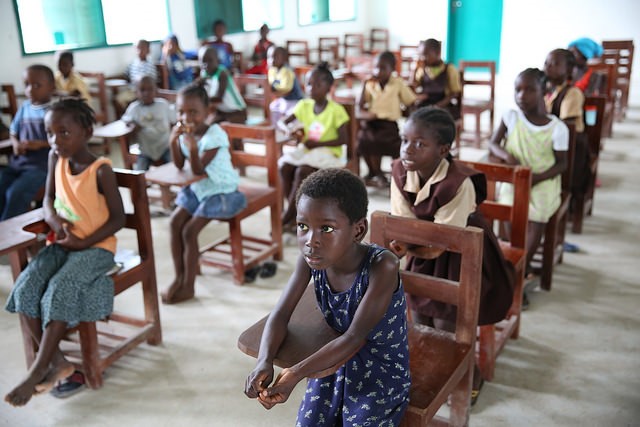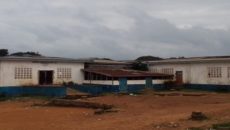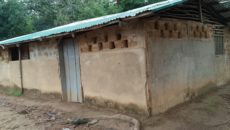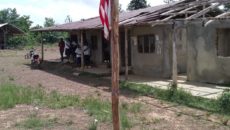Listen to any talk show on Liberia’s airwaves and you will get one unequivocal impression: Liberians are becoming increasingly frustrated with the slow pace of socioeconomic progress.
No doubt, the challenges are enormous, and the resources are scarce. However, this is no excuse for inaction. To get Liberia on track to a prosperous future will require laser focus on spurring innovation and making substantial investments in a select few sectors that have the greatest potential to address our immediate challenges. Unemployment, inadequate infrastructure, food insecurity, and crime – while simultaneously positioning us to achieve sustainable development and economic competitiveness in the long term.
It will not be easy; but, it is possible through smart investments, wise policymaking, and rigorous implementation.
This article is the first in a series of articles that will be released by The Covenant with Liberia team, which is a sociopolitical movement of grassroots activists, civil society organizations, and political leaders passionate about engaging ordinary Liberians to create lasting solutions to the country’s biggest socioeconomic problems.
The Covenant with Liberia is built upon six pillars:
- quality and practical education for all Liberians;
- Liberianization and full control of our economy;
- agriculture and food security;
- reliable and sustainable infrastructure – including energy and transportation
- full access to quality health care; and
- the rule of law including eliminating systemic corruption.
While there are hundreds of other pressing issues to consider, we believe that a government that deeply focuses on getting it right in these six areas will create a strong foundation for robust long-term economic development, security, and equitable wealth distribution.
This article focuses on education and lays out an approach to funding quality education in Liberia that is sustainable and indicative of the “outside-the-box,†innovative approach required to permanently fix many of Liberia’s seemingly intractable problems.
Education is critical to Liberia’s long-term stability and economic progress. Indeed, in the long run, a country’s level of development is determined by the number of productive people in the country. Rigorous, practical and relevant education will enable Liberians to create the kinds of innovations in industry, science, and the arts that will lift millions of Liberians out of poverty and into prosperity.
Today, our education system is broken. High school and college students are not being taught the skills they need to successfully navigate the employment landscape. As a result, thousands of our graduates are underprepared for the workforce, and currently without jobs.
Teachers grade students based not on the student’s ability to comprehend the lessons; but, sadly, on the student’s ability to cheat their way through or pay a bribe. On the other hand, rather than preparing to teach what is required by the grade levels, lesson plans, and syllabi, teachers tend to teach what is comfortable for them without the required preparation.
In most cases, schools overly focus on evaluating students based on the students’ ability to memorize and regurgitate mundane, esoteric facts, with no emphasis on comprehension and analysis, leadership, innovation, entrepreneurship, and creativity.
Teachers are either underprepared or unprepared to teach. More than half of teachers in K-12 are teaching in a subject area outside of their academic discipline; and, simply getting a diploma is the reason for going to school rather than the pursuit of knowledge.
Even sadder is the fact that thousands of Liberian families are being shortchanged by the system. Hardworking Liberian parents – many of whom did not receive a formal education themselves – work day and night to earn income to send their children to school.
As a country, we have come to the realization that education is the gateway to prosperity, and rightly so. For many countries around the world, education is “the great equalizer,†creating access to opportunities that were once reserved exclusively for wealthy and well-connected socialites.
However, in Liberia, many parents and youth today are disappointed that this promise has been broken; a college degree is not necessarily a pathway out of poverty and deprivation. This is because while educational institutions charge parents very high fees with the promise of preparing their children for a better future, our schools today mostly fail to deliver on that promise. These days, parents work for almost half their lives to send their children to school; and, still have absolutely no security that their children will take care of them in the future. This is one of the greatest injustices of our time!
Fixing Liberia’s education system requires getting back to the basics: ensuring that students graduate from school fully equipped with the skills they need not just to survive, but with skills to thrive within any environment.
To succeed in the 21st century, our schools must impart key skills: leadership, critical thinking, innovation and entrepreneurship, modern technology, ethics, Liberian and African history – in addition to core studies in subject areas such as mathematics, the natural and social sciences, and the arts.
Teachers must be thoroughly vetted, trained, monitored, and properly compensated for the tremendous service that they provide to our nation. To build an education system of the future, we absolutely cannot have poorly prepared high school graduates teaching high school students – or even elementary school students. Similarly, we cannot have mediocre college graduates teaching college students. It simply will not work! Our teachers need to be subject matter experts with sufficient maturity and experience to ensure that our students are receiving the highest standards of teaching and that the classroom environment is conducive to learning.
Beyond rethinking the content and philosophy underpinning our education system, we must take a radical approach to educational financing if we are to successfully train our youth to thrive in the 21st century.
Revamping Liberian education cannot and must not be seen as a quick fix. Improvements in school and teaching quality must be sustained over a significant period to successfully yield results. It will require solid and stable financing that is predictable, extremely well-managed, and consistent.
Currently, Liberia’s educational financing has been largely sourced from donors and through the general budgetary process. Given that both donor and government funding are constrained by many internal and external factors such as politics and global economic trends, key aspects of Liberia’s Education Sector Plan remain to be implemented or achieved because, quite often, there are budget shortfalls.
Officials of the Ministry of Education spend so much time raising funds, which takes away from time that should have been spent implementing the Sector Plan. To secure Liberia’s long-term economic viability, we must treat educational reform as a priority not just in rhetoric, but also in action.
I had the honor to serve Liberia as Minister of Finance from 1999 to 2001, which gave me a unique perspective into the good and the bad aspects of government budgeting.
Given extremely scarce resources in Liberia and so many competing priorities, it is very rare for any single ministry to receive full funding through the budgetary process. Furthermore, the budgeting process is highly politicized, which results in a lack of consistency in funding critical initiatives – such as education – over a sustained period.
However, it is clear that to successfully revamp our education system, we will require substantial financing, innovation, and focus not just for one or two years, but for at least a decade or more. Consistency is key.
How do we fix the issue of funding education?
We need to be resolute. Education reform is too important a policy issue and requires special attention. We already have a workable Education Sector Plan. The real question is, how do we finance that plan fully, sustainably, and consistently for as long as is required to create an environment where our children and youth can learn, experiment, innovate and thrive in similar form and manner as other young people around the world.
I propose setting up a Liberia Educational Fund Trust, or LEFT. The Trust would be managed directly out of the Office of the President, thus eliminating bureaucracy, the potential for corruption, theft, embezzlement and increasing oversight and accountability. In other words, the buck stops with the President.
The overall duty of monitoring and administration would fall to a ten-member Board of Trustees, comprised of six Liberian appointees and four international donor partners. This way, the Ministry of Education can focus all its attention on implementing programs to improve school quality and increase access to education, and not spend a single minute worrying about budgeting and fundraising. This approach saves up much time and mental energy that can be put toward getting the real work done: preparing our young people to succeed and thrive in this age of globalization and communication.
How do we finance this critical priority without overly taxing our already-struggling families? Again, this will require courageous leadership, innovative policymaking, and rigorous implementation.
Currently, the Government of Liberia and its international partners finance the Liberia Education Sector Plan. However, there remains a staggering 24 percent funding gap, creating uncertainty within the system and weakening Ministry of Education’s ability to implement programs consistently in the long term.
LEFT minimizes this uncertainty by locking in resources and allocating those resources specifically to funding the country’s educational priorities. In essence, all financing allocated and/or pledged toward education in Liberia – from government, donors, and investors – are placed into LEFT, and are spent exclusively on education programs – according to a carefully designed budget.
Through what I term “smart taxation,†we can even expand the size of Liberia’s education budget by an additional US$40 million to $80 million per annum.
We can achieve this by increasing excise taxes on certain goods that form a small share of average household expenditure of middle and low-income households, are relatively demand inelastic relative to price, and have some social externalities that might not currently be fully internalized by the consumers of such goods.
Take cigarettes and tobacco products, for instance. In 2015, an estimated US$11.6 million worth of tobacco products were imported into Liberia. Similarly, according to World Health Organization data, the total market for beer, wine, and spirits in Liberia is estimated at US$60.5 million, of which approximately 57 percent (US$39.6 million) is imported.
Increasing taxes on these kinds of goods can help us raise much-needed revenue to fund our education reform programs, without negatively impacting the economy. In the Central Bank of Liberia’s Harmonized Consumer Price Index, alcoholic beverages, tobacco, and narcotics account for only 3.03 percent of household expenditure, suggesting that increased taxes – and hence increased prices – on these goods will have only a marginal effect on household welfare.
Furthermore, demand for alcohol and tobacco are relatively inelastic, with most research studies estimating that a 10-percent increase in the price of alcohol will typically lead to a 1-to-2.5-percent decrease in demand for alcohol. Similarly, a World Health Organization study shows that in low-income countries, a 10-percent increase in tobacco prices will typically lead to a 2-percent decrease in demand for cigarettes. In essence, increased excise taxes on goods such as alcohol and tobacco can sustainably generate revenues to make long-term investments in critical areas such as education.
Even if demand for these goods fall marginally due to higher prices, it might benefit society as a whole due to the negative health impact of alcohol and tobacco products.
Currently, Liberia imposes a 25 percent excise tax on imported alcoholic beverages and tobacco products. If that excise tax is increased to 50 percent of the total taxable value, we will automatically generate a minimum of US$25.6 million from imports alone, with an additional US$13 million generated by placing a 20 percent tax on domestic production.
A similar tax can also be placed on other goods and services that are arguably harmful to society – such as gambling. Every dollar from this tax would be placed into the Fund. Not ten percent, not half, not two-thirds, but every single dollar – paid directly into LEFT’s account with a mandate to spend exclusively on financing our ambitious education reform agenda. Funds raised this way will certainly be supplemented by an additional budgetary support.
With a clear roadmap and such strong demonstrated commitment from the government, we can then take this idea and pitch it to our international partners, donor organizations and friendly nations to set up a matching fund mechanism.
If we can raise US$40 million from increased excise taxes on cigarettes, alcohol and gambling, in addition to another US$40 million directly from the budget, we can take this US$80 million, and work with our partners to match this fund one-to-one. That would ensure a commitment of at least US$160 million per year, with the possibility to grow to an even larger sum in subsequent years.
Comparing the cost of cigarettes alone, in New York City, the average cost per pack is US$14.50 – which includes a tax for education and healthcare. In the United Kingdom, the cost is similar, and in South Africa, it is about US$4.14 per pack, while in Liberia the average cost per pack is between US$1.00 and US$2.00.
More alarming, however, is the fact that that the excise tax is only six percent of the retail price of cigarettes in Liberia while the World Health Organization’s recommended benchmark for excise tax on cigarettes is 75 percent of the retail price.
With the implementation of an education trust fund, the cost of cigarette pack would then range between US$1.50 and US$3 under Team Covenant’s plan – an insignificant amount – which in fact would not significantly curb demand. However, it would significantly contribute to properly funding a school system in much need of repair.
We simply cannot afford to have an educational system which is at a standstill. Over the past twelve years, there has been no significant improvement in knowledge content in our schools. The performance of high school graduates on the West African Examination Council exam has not shown any real increase in more than eight years.
After almost twelve years of post-war leadership, this level of stagnation is simply unacceptable. We are Liberians, and we can do better. Our teachers deserve better pay, period. Our schools and children deserve better curriculums. Our standards need to be increased. Every school in Liberia should be affordable for every child in Liberia – not just for certain tribes or ethnic groups and not just for the wealthy, but for all Liberians across the board, in every county, in every village, in every city and every district.
In the United States, excise taxes have been used effectively, not only to fund education programs but also to lower healthcare cost and improve infrastructure. I do not believe there is any reason the same cannot be done in Liberia. Small steps turn into larger steps. Education first is the key to our stability, development, and national improvement.
Featured Photo by Dominic Chavez/World Bank



